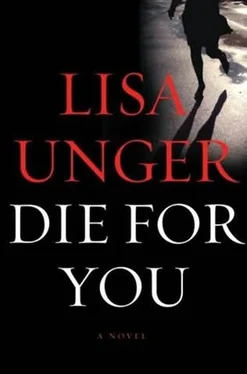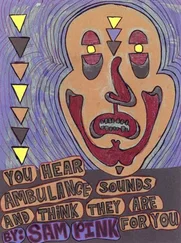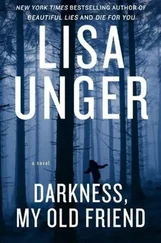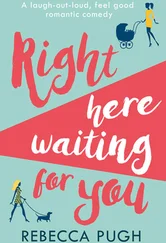Prague.
That magical city with its bloodred rooftops and towering castle, its muscular bone buildings and dark hidden squares. It captured me the first time I walked its cobblestone streets and marveled at its magnificent architecture. How I dreamed of Franz Kafka in the cafés he haunted. How I reveled in the predawn hush, the only quiet moment on Charles Bridge, that cascade of stone with its towering, tortured saints moaning through the ages. How I loved it even more the second time with my husband-to-be. I felt it became mine somehow when I married Marcus, someplace that would become a part of our lives, of the history of the children I hoped to bring into the world. The next time I visited Prague its secrets would try to swallow me, devour me whole. But I didn’t know that yet.
It made sense to me then. He would return home, of course. How long had it been since I’d seen him in Camilla’s apartment? Two, maybe three hours. He could be on a plane already, couldn’t he? There’d be a stop in London, maybe Paris. But then he’d go back to the place that made him.
When I looked up again from the man whose name I never knew, I saw her standing about a hundred feet away-the woman I knew only as S. She wore a strange expression as she stared directly at me. I heard Detective Breslow’s words again. There’s so much rage evidenced here . She hated me. She envied me. I saw it there in the features of her perfect face. Why? Because he’d loved me once? She had it all now, didn’t she? My husband, my money, even my ring?
She looked like any slim New Yorker taking a run in the park too late at night, except that she had Camilla’s bag strapped over her shoulder and across her chest. She wore black leggings, a short white jacket with black racing stripes down the sleeves. Another man-I might have recognized him as one of the faux FBI agents who took apart Marcus’s office, but I couldn’t be sure-was behind her. He was dark and thick-bodied, but he hid in shadows and I couldn’t clearly see the character of his face.
I rose and Jack moved in front of me. He didn’t know who they were; the weapons they must have been carrying weren’t apparent. But he knew their malice instinctively, acted to protect me.
I reached for the gun in my pocket and gripped it hard.
“I have a gun!” I yelled from behind Jack. I sounded pathetic and desperate.
S turned to look at her partner and they both started to laugh, filling me with childish rage. I almost took the gun out and starting firing, so unhinged was I in that moment. But they both broke into a run. As she turned, she lifted her hand in a friendly wave. And then she was gone, the shadows of the trail swallowing them both. I let them go, drained, stunned. I knew when I’d been beaten. I’d made a gamble and lost. We both stood there for I don’t know how long, just staring after them. Then we heard the distant wailing of sirens.
“We should stay and wait for the police,” Jack said sensibly. “Tell them what happened.”
The foolish things we do in the wake of lost love. How angry we are, how desperate when it’s snatched from us, as though we had some right to have and hold it forever. We don’t see love as an organic thing that might fade and die like flowers in a vase. We compare it to minerals and gems, things that last unchanging through time. When love dies we see it as something precious, solid, owned, that was stolen from us. We chase it, beg for its return, revenge its loss, try to steal it back. We don’t imagine that it could fade like vapor, that it was just a moment that has passed as life itself will.
I was in the grip of righteous anger.
“I need my bag and my money,” I told him, holding his dark, fearful gaze.
“Iz.” He turned, put his hands on my shoulders. I put my hands on top of his. The wailing of approaching sirens grew louder.
“Are you my friend?” I asked.
“Iz.”
“Are you?”
“Of course.”
“Then give me your keys. Tell me where the money is, and let me go.”
He shook his head. “Go ahead. I dare you to pull a gun on me, too. I’m not Erik. I’ll make you shoot me.”
I dropped my chin to my chest. “Please, Jack. I can’t let him have so much. I’ll never be able to live with myself. I’ll die.”
I couldn’t bring myself to meet his eyes. I didn’t want him to see how deep was my rage and my shame, how total my desperation.
“Okay,” he breathed. “Let’s go.”
The disease that Marcus brought into my life had infected everything and everyone connected to me, now Jack included. But he’d always been my coconspirator, the one who understood my mind best, so it was only natural that we should come together now in the writing of this story, the end unknown to both of us. We’d bandied about countless plots, argued over motivation, plausibility, fought about truth in character. Of course, he’d want to help me resolve the fiction of my life with Marcus. I might have convinced him to let me go; I knew he loved me enough to let me do what my heart dictated, no matter what. But the truth is I didn’t want to face alone what lay ahead.
We joined hands and ran.
Linda didn’t have an off-switch, not when it came to her children. She and Erik didn’t take a week away, like their friends often did, leaving the kids with Izzy or one of the grandmothers. She just couldn’t imagine it, boarding a vehicle that would loft into the air, separating her by hundreds or even thousands of miles from Trevor and Emily. Margie thought this was very unhealthy, that ultimately it would take a toll on the marriage, that the children would become too dependent, too needy, never self-reliant. And maybe she was right. She and Erik were in crisis. Trevor cried like a toddler when she’d left them earlier with Erik’s mom; Emily sulked. But Linda thought Margie’s off-switch was a bit too well-developed, that she had disconnected too easily and too often from her girls. That sometimes even when she’d been present, she’d been absent. Izzy didn’t share her feelings about this, remembered things differently.
Linda remembered often feeling alone in her family, that she was no one’s first thought. Her shrink thought this caused her to be overly vigilant to Trevor’s and Emily’s needs. It was true that since Emily was born there hadn’t been a morning when she wasn’t immediately upon awaking tending to one of her children. There had been no mornings of languishing in bed with her husband, no really abandoned nights out. Ever. Was this unusual? She didn’t really know. Most of their friends, other artists or professionals, had chosen to have only one child. Most of them had full-time nannies or au pairs, young, live-in girls from Europe who seemed in the best cases like surrogate children (whom you’d never had to diaper and who now did the dishes and cared for the smaller child), and in the worst cases like tight-bodied interlopers gazing with barely concealed avariciousness at their wealth and husbands.
She knew her friends loved their children; she didn’t judge them. But it seemed to her that only she and Erik were parenting full-time, fitting work and life around Trevor and Emily, putting personal wants and needs last or never. Which way was right? Who was better off? She honestly didn’t know. She just knew she couldn’t be another way.
She remembered reading somewhere that the look on your face when a child enters your field of vision is one of the single most important factors in the shaping of that child’s self-esteem. Luckily, she couldn’t keep the delight off her face when she looked at Trevor and Emily; their faces, the sound of their voices, their accomplishments-from walking to potty training, from academic achievement to personal blossoming-filled her with more joy and excitement than anything else she’d known in her life.
Читать дальше












